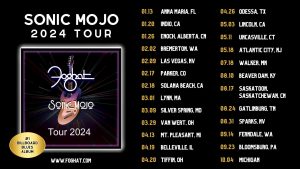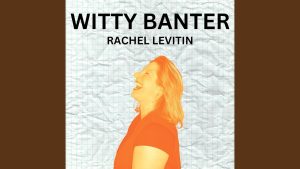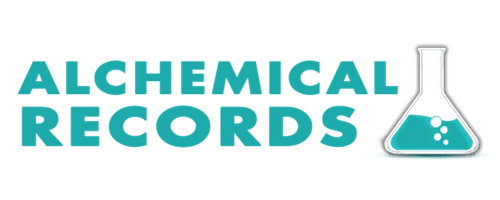
Amy K. Bormet is a D.C.-based pianist, vocalist, composer, activist who organizes the Washington Women in Jazz Festival every March to uplift women and nonbinary artists in the jazz community.

D.C.-based pianist, vocalist, composer, activist, and more, Amy K. Bormet is a staple to our music community, especially the local, but not limited to the national and international jazz realm. As well as putting out fantastic music – both solo and collaborations – Bormet has organized the Washington Women in Jazz Festival every March since 2011. Bormet is also the co-owner of Strange Woman Records, a record label she began in 2019 with her husband, guitarist/sound engineer Dr. Matt Dievendorf that “presents live events and recordings of adventurous improvised music”, featuring many artists from the DMV.
Bormet grew up around music, with a family of singers and a mother who played clarinet. Her older brother took piano lessons, and her parents enrolled her as well when they realized she was stealing his practice books to sneak away and learn on her own.
“And we had my grandmother’s piano in the house,” she says. “I had a nice combination of beating up on it without music, and then trying to learn how to read music and making my friends sing songs and play the piano with me … So that’s how early on I was really attracted to music-making and played a lot of different instruments, and I always had instruments in the house,” she recalls. She also did any band, choir, or drama club she could find to be onstage.

She moved to Washington, D.C. from Oregon when she was 16 years old, going into her junior year, and pursued music at Duke Ellington School of the Arts. She was “obsessed,” and “immediately fell in love with it” the moment she auditioned, then was accepted. This was about the time she decided to become a serious musician, “and then started gigging with the kids at the school and with the jazz program there, and going to jam sessions and all sorts of things,” she says, “up and down U St. and 14th St.”
One of her biggest teachers and mentors is Davey Yarborough, who served as a jazz educator at the school for over 40 years. As someone who participated playing music in a summer youth employment program in high school run by Yarborough, Bormet says, “Davey Yarborough is really just an amazing person, and someone for me to look up to in terms of the community that he creates around equity, and in specifically in jazz music education.”
Bormet would describe her music as “definitely coming from the jazz space,” she says. “I was also obsessed with Duke Ellington and learning all of those tunes and writing my own songs really early on.”
She loves piano, drums, bass, and prides herself on being able to play a lot of different styles. “I had formal and informal training – in school and on the bandstand – I’m really grateful for all of the people who have shown me how to do a lot of different genres,” she says. Living in Los Angeles before the pandemic, she describes how she was playing a wide range of styles as backup for pretty much every genre.
“And being able to jack of all trades, just to do it all, it really helped me pay my bills and was really great for me while it was happening. Now ever since moving back here, I really took the impulse to rely on my own music-making and my own trust in myself of what kind of music I wanted to make, and to be creating things more for my personal taste.”
She calls D.C. a great place of power for her because of the connections and audience she has built here. Now she performs 95% her own music.

Her most recent release (April 6) is “Lodestone” via Strange Woman Records, and she has also recently collaborated with Eliza Tebo playing piano on her new record that just won Best Jazz Album at the 2023 Wammie Awards.
“We’ve had the opportunity to put out some singles recently from different artists that have been broadening the base of what type of music we’re doing,” she says. She is part of a few bands that are simultaneously active, including her new group called Biomorphic Forms, “a genre-bending bass-less exploration of nature.”
Her other group is a trio called No Trick Pony that also focuses on openness and improvisation. “I’ve been having a lot of fun,” Bormet says, “and I’m really grateful to be someplace where I can play with a lot of different musicians and make a lot of different types of music that are all still really compelling to me, and really exploratory for me to be able to move in a lot of different directions at once.”
Besides her own solo and group performances, Bormet organizes performances during the Washington Women in Jazz Festival. During its 13th year this March, it featured a wide variety of artist shows and activities to celebrate the Washington jazz community’s women and non-binary members, such as gigs, workshops, and showcases with women and nonbinary jazz musicians, including college and high school students.
Bormet herself held a residency at Blues Alley, with Biomorphic Forms joining a show. WWJF also launched a magazine, The Turnaround, which “aims to amplify a cross-section of our culture: reviews, interviews, and detailed academic histories of notable women in jazz will run alongside pieces that would be at home in a cut-and-paste zine.”

Constantly creating is at Bormet’s core (she’s already planning next year’s festival). She says she loves the process of writing songs.
“I think a big part of it is maintaining the mentality of not editing myself, or at least getting a crappy first draft of the song,” she says. She gets inspiration from either a prompt or reminiscing upon distinct memories, such as specific visuals and experiences.
“Then I can start to piece together what’s verse material versus what’s the chorus material, and then go from there and start cutting things out and copy pasting things in different ways to see which ways are the most impactful and most interesting for me.”
Bormet likes to start her songwriting with the lyrics because it helps her think about the imagery she wants to convey in a song, but she also does a lot of instrumental composition, having written for large ensembles and orchestras. Free writing is extremely important to her: “I have built-in time to basically do the piano version of free writing.” She improvises for 5-10 minutes and picks out elements she likes, experimenting with sound. She writes things down and sketches a map – “I will start to create a form on the sheet of paper like, ‘When do I want it to be the loudest? When do I want it to be the quietest? When do I want it to be the most dense? When do I want it to be the lightest? When am I going to come back to this theme?’ And then I’ll just move those pieces around yet again, until I see a form that makes sense.”
This process has worked for her since she started writing songs at 16. Among her busy schedule, Bormet tries to keep her mornings open for being creative, with her afternoons for organizing, meetings, and emails/calls. Eight to noon is her time for uninterrupted space “to practice all the music that I’m performing, to keep up the physical routine of my body and my voice, and to just have some mental space to figure out what my personal priorities are before I have to get to everyone else’s priorities,” she says.
As for upcoming goals and projects, Bormet is always eager to travel the world and collaborate with a wide range of people. Virtual communication during the pandemic allowed her to exchange online relationships with musicians across the globe.
“I don’t want to tour,” she says. “I don’t like constantly having to move around; I like to have actual relationships with people and really get into something and experience what their music is like, what their life is like, what inspires them, what the food’s like, what the culture is like, and really getting into the whole scene. And so that’s been something that I’ve been really cherishing as a musician.”
She carries the experiences and relationships she has built from one goal to the next.

Learn more about Amy K. Bormet here to stay up to date on her upcoming projects and events.

Emma Page, a recent Journalism graduate of The George Washington University, possesses a passion for music journalism and storytelling in all its forms. Originally from Baltimore, MD, when she is not writing, she can be found at a local concert or making music of her own.
Subscribe to Alchemical Records today to support our efforts online and in print.
Join the Alchemical Records Street Team to promote these and other artists, live music, and music community organizations & events while receiving cool perks from artists throughout the region.

Recent Articles March 21st. A day that I will always think of amazing album releases. DC-based musician, producer, and singer-songwriter, Rachel Levitin, released Witty Banter

Alchemical Records is a Washington, D.C. based music publication. We cover the Washington, D.C., Baltimore and Richmond, VA metro area music scenes, including band interviews, articles about your favorite musicians, new music and concert dates.